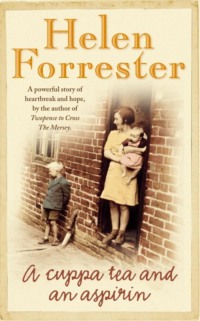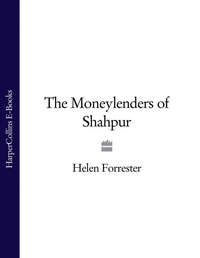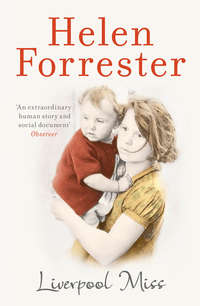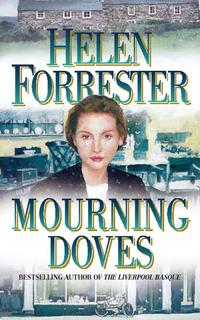
Полная версия
Madame Barbara
Barbara changed the subject. She said slowly in English, ‘It was very kind of the American soldiers – the undertakers at the hotel – to permit you to take me to the cemetery. The hotel says they booked this taxi for four whole months. The reservations clerk said that you usually stay with the Americans at the cemeteries throughout the day while they work.’
The length of Barbara’s remark made it a little difficult for Michel to understand. He replied cautiously, ‘American Army very good, soldiers most kind, Madame. Lots of petrol! Certainement, they pay taxi four months – not like the Boches – he never pay for anything he can take, les sales Boches.’
Though he laughed, he sounded cynical, as he remembered how some German soldiers had demanded his best poultry breeding stock and had wrung their pretty necks in front of him. Then they had made his mother clean and pluck them ready for cooking. Cook some of the world’s best breeding stock? It was murder. His poor Chanticleer and his pretty, fertile wives. Hélas! How would he ever find the money to replace them?
As he mourned his dead hens, Michel edged the vehicle round a pothole filled with water, and then continued, ‘Taxi is the only transport to cemeteries, Madame. Now many people want to visit their dead. This is the only taxi in Bayeux. So I ask Americans, can I take civilians to the cemeteries, while they work? I promise to collect them from their American cemeteries exactly when they order. You understand taxi cannot be left for one moment unattended. Someone steal, dead cert.’ Michel was rapidly extending his vocabulary while working for the Americans.
‘They say OK. Take some lady to cemetery. Make a buck. So I drive American ladies, English ladies, one lady from Poland – widow of man who fight with British, je crois.’
He cleared his throat and spat out of the window. ‘Two German ladies come – they omit to tip me.’ He half turned his head towards her. He sounded mystified, as he added, ‘You know, they cry like everyone else.’
‘I am sure they did,’ Barbara agreed.
She felt fiercely that she did not care whether the Germans flooded the earth with their tears; they could never undo the ruination of her life by the taking of her George’s life.
Let the German widows cry. Let them suffer. She hoped their cities remained shattered, their factories empty, looted by both Americans and Russians, their farms fought over and desolate. Let them pay.
After a while, to take her mind off her own troubles, she asked the taxi driver, ‘What are the Americans doing here? Are they really undertakers? Aren’t all the dead buried yet?’
‘Ah, simple, Madame. They arrange for dead American soldiers to go home. Bury them in America.’
‘What a lovely idea!’
‘Very, very expensive, Madame.’ Michel obviously did not believe in such a waste of money, even if it resulted in work for himself.
They swung round a corner into a narrow lane. At the end of it, an open ironwork gate faced them, and, beyond that, what at first looked like a sea of white and green.
As they drove through the gateway, the sea resolved into masses and masses of white crosses set in neat rows amid green lawns, stretching, it seemed to Barbara, into infinity.
She caught her breath. So many! Her mild amusement at the taxi driver’s disapproval of American extravagance was forgotten in the shock of being suddenly surrounded by the evidence of so much death. Surely, it could not be?
But the evidence lay there, crying out in its silence.
She was appalled.
Just inside the gate, the taxi came to a halt. Michel opened Barbara’s door and took her hand to help her alight. Her normal self-confidence left her. She was so shaken by the scene before her that she was grateful for the man’s firm grip; though he smelled at least it was the smell of a man – a man such as she was used to, who worked hard.
‘I get the flowers for Madame,’ he said gently.
She looked at him a little helplessly, and then she pointed to her dropped handbag and asked him if he could reach in and rescue it for her.
‘Mais oui, Madame.’
The cloth bag was covered with dust and not a few hayseeds, blown in when they had passed the hay wain. Michel carefully brushed it as clean as he could, before handing it to her.
He smiled. ‘Very pretty bag, Madame.’
‘Thank you,’ she answered, and then, looking a little rueful, she muttered absently, ‘I made it myself. It’s still difficult to buy things.’
He made a wry face. He, too, knew about the shortages of everything. He leaned into the taxi to retrieve the flowers for her.
As he handed the bouquet to her, he saw that despite her casual remarks about her handbag she had gone as white as her lilies. Her dark blue eyes were wide with fright.
Pauvre petite! So little, so sweet, and, at this moment, looking so helpless. He wanted to take her in his arms to comfort her and tell her that all would be well, that she could be sure that Jules, the gardener, was very kind and that he looked after the graves with great care.
In the silence of the cemetery, his voice sounded harsh, as, instead, he cleared his throat and enquired hastily, ‘Number of the grave, Madame?’
She told him.
He took her arm. ‘I walk with you. Then wait by taxi.’
She was shaking, and simply nodded acceptance. Fearing she might faint, he held her arm firmly and guided her further along the little lane on which the taxi stood. ‘Germans that side, Allies this side,’ he explained.
She nodded again. They walked across the grass for a minute or two. From a little fenced enclosure at the back of the cemetery, a figure emerged.
‘He is Jules – the gardener,’ Michel told her.
She was pressing her arm against the driver’s guiding hand, as if she never wanted him to let go, but she showed some sign of animation by saying, ‘Oh, yes. I remember the name. I wrote to the Head Gardener of this cemetery. He replied that the cemetery was, at last, open for visitors. His letter was so kind. So I knitted a pullover – out of wool from old pullovers – and sent it to him as a thank you present for, for …’ Her voice broke for a moment, then she went on more firmly, ‘for looking after George.’
The taxi driver showed surprise. ‘He like that. Nobody thank gardener before – certainement.’
As Jules approached, she smiled at him as bravely as she could. The driver repeated the number of the grave to him.
‘Come, Madame.’
She unlinked her arm, and, hugging her flowers, her chin up, her face suddenly old and grim, she walked forward – like St Joan going into the fire, the driver told his brother, Anatole, sometime later.
Chapter Two
All the modest hopes of George and Barbara had come to naught. Without George, his young widow considered, life was not worth living. She wished passionately that she had a child to console her, but they had deferred having a family until the end of the war.
From the day the war began, Barbara and her mother, Phyllis Williams, had fought a stalwart battle to save their home and their means of livelihood until peace should be declared. It had been a hard, very long struggle, and, on top of that, to be bereaved was difficult to bear.
They owned a small bed-and-breakfast establishment abutting the seashore on the Wirral peninsula. It was about eight miles from Liverpool, on the other side of the River Mersey, and not far from the estuary of the River Dee. They had worked for years to build it up as a nice place for commercial travellers to stay overnight, and for people in search of a family holiday during the summer.
Their home was an old farmhouse, lovingly restored by its original owner. Barbara and her mother ran the business while her father went to sea. He had been torpedoed in 1941.
For the sake of her daughter, Phyllis wept for her husband in secret and dealt firmly with the other problems the war had brought her.
‘We’ve got to eat, luvvie,’ she had told twenty-two-year-old Barbara, who had been devastated by her father’s death. And with considerable courage, like other Merseyside bereaved women, mother and daughter continued to try to live as normal lives as possible. It was not easy.
As far as Barbara was concerned, the battle had seemed worth it once she had met George.
She had actually seen him once or twice in the village, a rather ponderous youth a couple of years older than herself.
She had met him again when he was on leave, handsome in his Army uniform, at a Red Cross dance held in the church hall. He had, he told her, not been much at home since leaving school; at first he had been learning his trade as an apprentice to a stone mason, working on repairs to Chester Cathedral. Then once he had his journeyman’s papers, he had found a place working on the new Church of England Cathedral in Liverpool. He loved his work; he was devoted to his cathedral. But cathedral building can be put on hold until wars are finished, so George had been called up.
After Barbara and George’s marriage in 1942, the newlyweds and Phyllis Williams had all three cherished hopes of living together in the bed-and-breakfast after the war was over. The women would continue to run it, and George looked forward to returning to his full-time work as stone mason on the unfinished cathedral.
Phyllis Williams had been very pleased to acquire such a well-placed, sensible young man as a son-in-law. Suddenly, the need to keep the bed-and-breakfast going had acquired new meaning for her; it would be a great place for grandchildren, and the three of them would be quite comfortable financially.
Both women had been crushed and bewildered by George’s death. But other people were dependent upon their business, and both women worked mechanically to keep the shabby farmhouse open.
‘It’s the small nightmares wot keeps driving you crazy,’ Phyllis would lament. ‘Some of them is the last straw.’ And they would both blow their noses, and do their best.
Phyllis, however, became very worried about her widowed daughter as she watched her decline into a dull, disinterested woman, who rarely went out socially. It wasn’t that Barbara did not do her share of the work of their little business; she did more than enough, and she knitted and sewed industriously to help eke out their sparse clothes-rationing coupons.
‘You know, Ada, there’s no life in her; and she’s too young to give up like she is,’ Phyllis had said anxiously to George’s mother. Ada was herself a widow who did not have much life in her either, except when talking about her garden, when her face would occasionally light up.
‘You know and I know, Ada, that you just have to put the war behind you and start again.’
Ada Bishop sighed deeply. Phyllis Williams was the bravest little soul she knew.
‘Perhaps, in the back of her mind, she hopes he’ll turn up again; it’s been known to happen,’ suggested Ada. ‘You don’t always think quite sensible when you’re young, do you? I know he’ll never come home. But she may still hope.’
‘You don’t always think sensible even when you’re older,’ replied Phyllis, with a wry smile. It had been hard for her to accept that her own husband had been torpedoed in Liverpool Bay in 1941, and would never return. But a lot of seamen never had a grave other than the sea. Then she said, with sudden inspiration at the thought of a grave, ‘Perhaps she’d see different if she could look at George’s grave! She’d really know then.’
The mothers agreed. They persuaded Barbara that she should take a break and go to Normandy.
So, after some argument, a listless Barbara had drawn on her wartime savings – it had been easy to save in wartime, because there was very little to buy – and had gone to see Thomas Cook.
Until catching the ferry at Dover and her subsequent arrival in Bayeux, she had felt fairly calm about the visit; in fact, she had regarded it as an unusual, but welcome break, taken to please Ada and Phyllis.
Now, thin and workworn, Barbara faced her loss as bravely as she could. She was physically exhausted, despairing in her own loneliness and that of her overworked half-fed mother, bedevilled by the continued strict rationing – and by the cold, the everlasting cold which Britain had endured in that hopeless winter of 1947–48, the lack of gas and electricity – and food. Would there ever be any let-up, she wondered. There seemed to be absolutely nothing to look forward to.
While travelling to France, she had dwelled on the miserable condition of her home. It had been, in 1939, such a pretty seaside bed-and-breakfast establishment, with an excellent reputation.
The declaration of war had put an end to that. The house and garden had been ruined a few days before the war actually began.
Children and their mothers were evacuated from Liverpool and billeted upon them. She and Phyllis, with three extra mothers in the kitchen, had been thrown into chaos. They had accepted, however, that these refugees from the heavy bombing that was daily anticipated had to be housed. They did their best to cope.
She shuddered when she remembered the day she had discovered that all their beds had bugs in them and the pillows had lice, brought in by evacuees from some of the worst slums in Britain.
Mercifully, the evacuees had decided they hated living in what they regarded as countryside, where there was not even a decent fish-and-chip shop, and had returned home to Liverpool, as yet unbombed.
Phyllis Williams and Barbara had had to burn the pillows, boil the bedding, and ask the Town Council to get the entire house stoved for them. It stank for days afterwards.
They painstakingly went through the bedrooms again, armed with a local store’s last tins of Keating’s powder. To their relief they found no more invaders. The kitchen and all the floors in the house were scrubbed and polished.
The front garden was a mess, tramped over by both children and adults.
Barbara wanted to weep. Originally, she had herself planted the garden and it had become her hobby. Looking back, she thought how stupid it was to weep over a small garden; she had wept many more bitter tears since then.
Her mother, made of sterner stuff, said, ‘We’ll get a lad to dig it over, and seed it with grass. And we’ll put a couple of flowerpots on either side of the front door.’
Barbara acquiesced.
‘The main problem is, Barbie, it looks as if we’re not goin’ to get our usual customers. The commercial travellers is all going into the Army, and, if this summer’s any example, the older couples what used to spend their holidays with us don’t seem to be taking holidays any more. So what to do?’
‘I don’t know, Mam, but if we don’t fill up this house quickly, it’ll be requisitioned again for something.’
They sat in silence, staring at their kitchen, once more restored to order.
Then Barbara said, ‘You’re right, Mam, about the elderly couples not coming. But I wonder if they’d come if we pointed out that if France falls – and it looks as if it might – the South’ll be in range for bombing. We could offer them permanent accommodation well away from it.’
Her mother slapped her knee. ‘I think you’re right, luv. There’s one or two people as has come up from London, staying in the village already.’
They had sat down and written to some twenty elderly couples from the South-East of England, who had in times past spent holidays with them. They made Barbara’s point about likely bombing, and the comparative safety of the North.
The nervous anticipation in the South of being bombed was sufficient. Within two weeks, they had all their eight bedrooms filled, housing a total of seventeen people. Their biggest bedroom held three quarrelsome, complaining old sisters, who proved to be the most trying of their hastily acquired visitors.
The overwhelmed local housing authority, themselves disorganised by the sudden weight of responsibility thrust upon them by the immediacies of war, decided that they could not very well dislodge such elderly refugees from the South without causing a scandal. They accepted the situation.
As grossly overworked Phyllis remarked, with resignation, ‘At least this lot knows what being clean means, thanks be to Mary.’
Phyllis and Barbara agreed that it was advisable to keep the house more crowded than it had ever been, lest the authorities suddenly change their collective mind and try to thrust additional, unwanted guests upon them. And there was always the overriding fear that the Army or the Air Force might requisition the entire property, though this did not happen.
So, for nearly seven years, as a constant background to their personal grief at the loss of their menfolk, the harassed hostesses faced continuous complaints about the difficulty of climbing stairs; and, though each bedroom had a sink, that there was only one bathroom and three lavatories in the place.
Regardless of the fact that almost every home in Britain was cold from lack of fuel, running wars were fought between old gentlemen trying to hog the chairs nearest the meagre gas fire in the lounge. Ladies complained of lack of hot water for washing clothes and having baths – even of getting into the bathroom in the first place.
Accusations regarding the unfair distribution of rationed food, particularly the tiny amounts of sugar, butter, cheese, jam and marmalade, flew back and forth between the little round tables in the dining room. Sometimes, perfectly respectable couples would accuse each other of theft of jam from their private pots, which had been specially provided by Phyllis to ensure fairness.
Frequently, Phyllis had to intervene in the altercations and point out the minuscule amount of individual rations. It all seemed so stupid to her. There were men like her husband Hugh, victim of a U-boat attack, and George, who would give their lives for them – and they screamed with rage over marmalade!
Anybody would imagine that they had no one in their families serving in the Forces; yet Phyllis knew that they did.
When, in 1944, George was killed, Barbara thought the refugees would drive her insane. She was sorely tempted to scream, ‘Shut up! Get out!’ at them, and she wondered how her mother could endure them so patiently.
When the war ended, most of them lingered for a while. A number had wrecked or damaged homes, which had to be restored before they could move down south again. A few, perhaps because they had been protected for so long from the reality of existence in a drained country, seemed unable to make up their minds what to do, and, meanwhile, had stayed on.
Particularly in 1947, the worried hostesses had had a real problem finding enough food, rationed or unrationed, to provide three meagre meals a day for the old curmudgeons. They had thankfully said farewell to the last of them at Christmas.
That same year Barbara and her mother had been very relieved to see the return of some of their usual clientele, commercial travellers. The gentlemen had little to sell. Wholesalers were anxious, however, to keep their company name in front of their old clients, so that, as soon as adequate goods were available, their pre-war share of the market would not be lost.
Once or twice, thought Barbara, the old folk had been very nice to her. Back in June 1942, when she had married George, they had insisted that Phyllis use some of their points rations, which meant very limited amounts of tinned food, like Spam or golden syrup, to make a wedding breakfast for the young couple.
In addition, all the ladies had set to work to embroider or knit or crochet little wedding gifts. Even the gentlemen, whom Barbara swore were the laziest bunch of old so-and-sos she had ever met, bestirred themselves. The result was a number of beautifully hand-carved gifts. Though she could no longer bear to look at them because it made her want to cry, she still treasured in her dressing-table drawer three neatly carved wooden spoons made from driftwood found on the shore.
She went round the lot of them to kiss them in gratitude.
They had been equally kind when they heard about George’s death; they had all expressed their sorrow at her loss, as those who knew about it had done earlier, when her father was killed. There had not been a single quarrel for at least two weeks.
During the weeks following the loss of George, two of the residents lost grandsons and at last, it seemed to Barbara, the reality of the war truly came home to them; not even a string of bombs dropped across the Wirral peninsula, nor the news some had received of their homes being damaged or requisitioned had been able to achieve that.
When the war began, Barbara herself had wanted to volunteer for military service and join the ATS, the Auxiliary Territorial Service. It sounded exciting.
Her mother would not hear of it. ‘With your dad at sea, I need you. Who else can I turn to?’
So Barbara, who loved her mam, stayed home.
When France fell to the Germans, Barbara broached the subject again. But Phyllis still would not hear of it either. Nice girls stayed at home with their mams. ‘And, anyway, wot am I going to do without you, and a house full of old folks to run?’ When her father was torpedoed, her mother was certainly glad to have her there.
A domestic crisis had occurred when, in December 1942, all married women under the age of forty were called up for war work. Barbara was directed to a contractor who was busy repairing damaged docks in Birkenhead. She worked on shift as a labourer together with one other girl. Her hours were long and the work, with all its lifting and carrying, was very heavy.
‘At least it’s better than the ATS,’ Phyllis said, as she rubbed Barbara’s back with surgical spirit. ‘You can sleep in your own bed.’ She imagined that she was being comforting.
Barbara’s bed was exceedingly cold, especially without George. She shrugged and looked down at her hands, which were rapidly being ruined by hard labour, and felt that the Army would probably have been easier. She had not, however, wanted to quarrel about it. She admitted to herself that, in comparison with pre-war earnings for women, her wages were very good. Since there was nothing much in the shops to buy, she saved as much as she could by opening a bank account and also purchasing war bonds. Between her work shifts she helped her mother, so her social life was negligible. They all prayed for a rapid end to the war.
George’s fourteen-year-old sister had left school the previous summer. She had since been working as a shop assistant for a greengrocer. When Barbara was called up, she volunteered, for a slightly better wage, to come to work for Mrs Williams, to make beds and clean floors. In addition, two elderly women from the village came in as part-time help.
As a result of these changes, the elderly residents found plenty more to complain about. None of them, however, moved out; the bombing of London was by then unremitting, and the heavy bombing of Liverpool earlier in the year was sufficient to keep them in the comparative safety of the village by the sea. Though, occasionally, their provoked hostesses wished them dead, not a single one of them died during the many years that they boarded with Phyllis.
‘We looked after them too well – or it was the good sea air,’ Phyllis replied acidly when Ada once pointed this out to her.
When travelling to France, Barbara had passed through Birkenhead and Liverpool on her way to catch a train to London. She had been forcibly reminded of the toll of war in Britain by the destruction she could still see there, and she remembered, with a pang, the long civilian casualty lists pinned up in the city, the pitiful treks each night that the inhabitants had made to the outer suburbs such as Huyton, in the hope of survival. How had George’s few surviving comrades felt when they returned home to this?
She was shocked at the miles of ruins she had observed in London. How many homeless people must there be in London? How many dead? She realised, with genuine distress, that there must be returning ex-service men who had lost their entire families in the broken, once close-packed streets of the capital. They must wonder what they had fought for.







